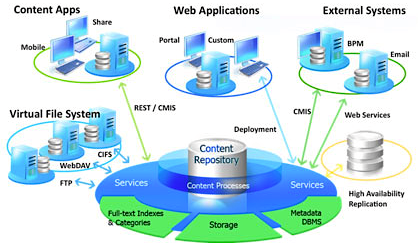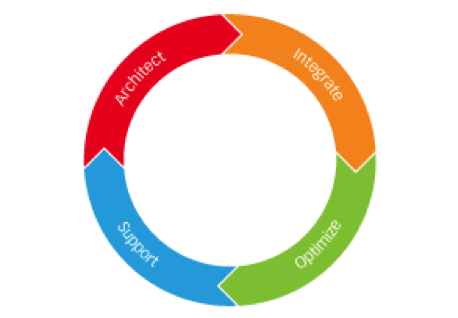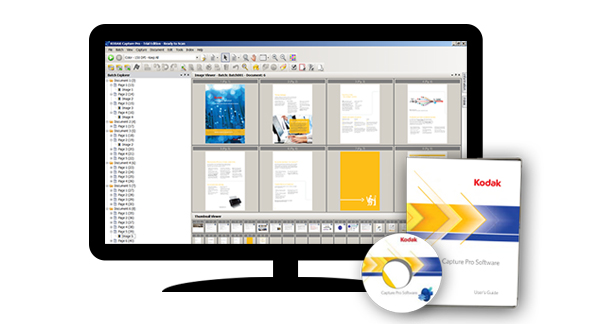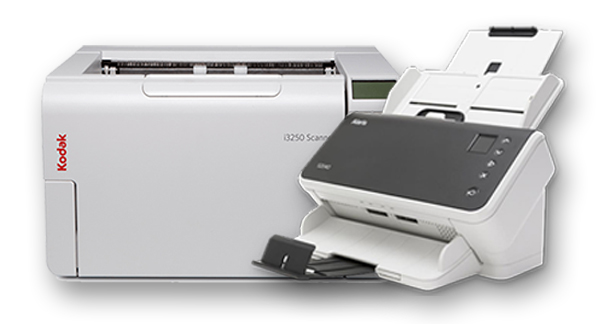Integration Management Services
Compatibility between systems is one of the most important issues for almost any organization. Today, seamless integration is no longer a value-add, it is a must.
Our Integration Engagement Model is designed to help customers plan complex initiatives for data integration projects that might start as synchronizing between databases and end as applications consolidation.

It is designed to address client-specific needs and get customers off to the right start in terms of data architecture, system setup, administrative processes and compliance. The engagement includes needs assessment and recommendations for appropriate strategies in these areas, to ensure important structures are in place before design and development begin.
Our partners and clients reduce their risk of project delays and failures by engaging Docuscan Professional Services for Integration consulting and implementation. With our technical expertise and resources, we significantly improve the probability of implementation success for data integration initiatives.

We leverage off our past engagements with numerous client, exposing us to a broad variety of business issues and technical architectures. Our methodology, knowledge base and consultants bring this broad experience to your project.Our consultants recognize that data integration projects are not static.
We understand that your solution will evolve with your business, with new releases introduced as often as every quarter. Thus, it’s imperative that we take time to learn, as well as deliver. As we close each engagement, we take time to ensure your team has the knowledge and skills to maintain and use your solution Integration Services Engagement Model. Docuscan professional services can deliver a variety of integration solution model.

Architect
Before designing any data integration solution, Docuscan works closely with each client to develop an optimum integration blueprint that satisfies their unique needs. We start by completely analyzing business requirements to ensure any integration solution we recommend perfectly matches your needs, whether it involves new applications that require integration with existing systems, or multiple data sources that must be integrated to improve business processing.
While you might add new business activities, we will always be ready to provide different means to enhance information access capabilities and streamline the flow of current operations through seamless integration techniques based on various technologies. Docuscan also takes your existing IT infrastructure into account.
We are sensitive to your need for processing different types of data in different cycles, and not integrating data until it is ready for consumption. We investigate in advance if your legacy software contains any interfacing capabilities as it ensures minimum manpower needs and higher reliability, not to mention cost efficiency.
Integrate
Docuscan professional services team does not stop with the architectural design of best-practice integration solutions. Before we implement a new solution into your production environment, we bring all the components of your integration solution together in our unique interoperability lab to ensure we meet all goals established in the architectural phase.
Only then we implement the new integrated solution into your existing infrastructure. To ensure that the integration goes smoothly, the engineers responsible for testing the solution in our lab will integrate the solution on production environment.
Optimize
Docuscan ensures optimization of your data integration on several levels. If you need to improve business performance by exploiting information trapped in disparate functional systems, we can help. Our expert engineers can eliminate isolated data silos by processing, translating, presenting and exchanging information across them, even when they involve totally different data formats, servers, operating systems and application software. We also ensure that your integration solutions are optimized so they can be sustained – either by your IT group or by our professional services team.
Support
Docuscan professional services team provides comprehensive support throughout the client engagement, from architecting a data integration solution to summing up and optimization. We are highly knowledgeable about how integration solutions work in a wide variety of production environments and can provide clients with advanced project management skills.
Docuscan routinely manages large , mission-critical engagements, ensuring at all times that our solutions meet time and budget constraints, as well as business and technical requirements. At the end of an engagement, we collaborate with our client’s IT staff to ensure full knowledge transfer, supported by excellent and comprehensive documentation. Post-engagement, we remain fully available on a consulting basis, whether to answer routine questions or advice on future integration upgrades and updates.
Project Management
In today’s global marketplace, complexity and speed are certainties. In such an environment, a good axiom for project management is: do it, do it right, do it right now. Creating clear direction, efficiency, timely response and quality outcomes requires project managers who are agile and experts at change.
Based on the experience of our senior staff in Project Management, Docuscan avails internal and on-site qualified project managers who can handle all project management and coordination issues between our team and client contacts. Our Project Management Office (PMO) has aggregated a special project management team that is experienced in software solutions development, implementation and deployment. A team whose members hold related certificates, and yet still gain and share experiences through the PMO.
At Docuscan we have adopted the PMI (Project Management Institute) Methodology as it has long been acknowledged as a pioneer in the field; PMI membership represents a truly global community with more than 200,000 professionals from 125 countries. PMI methodology encompasses various Software Development Life Cycle (SDLC) models, as applied to software development, and provides standard frameworks to manage single project and project portfolios.
It addresses issues such as scope management, allocating resources in matrix environment, calculating times to finish sequential and parallel tasks given their expected completion time and statistical variance, risk management (assessment, quantifying and mitigation/contingency planning), communicating with stakeholders, and others. PMI also defines formal methods of performing Earned Value Management (EVM) and finally costs tracking for any given project.






